Fix: Windows Update “Install Error – 0x800B010A”
It is important to install Windows updates to patch known bugs and equip the system with new features. At times, you will get the error 0x800B010A when updating Windows on your system. This update error can occur with different Windows versions such as 7, 8, 10, or 11, and it may arise while updating the .NET Framework, drivers, or other operating system elements.
The error code 0x800B010A directly translates to:
A certificate chain was processed but ended with a root certificate that is not trusted by the trust provider.
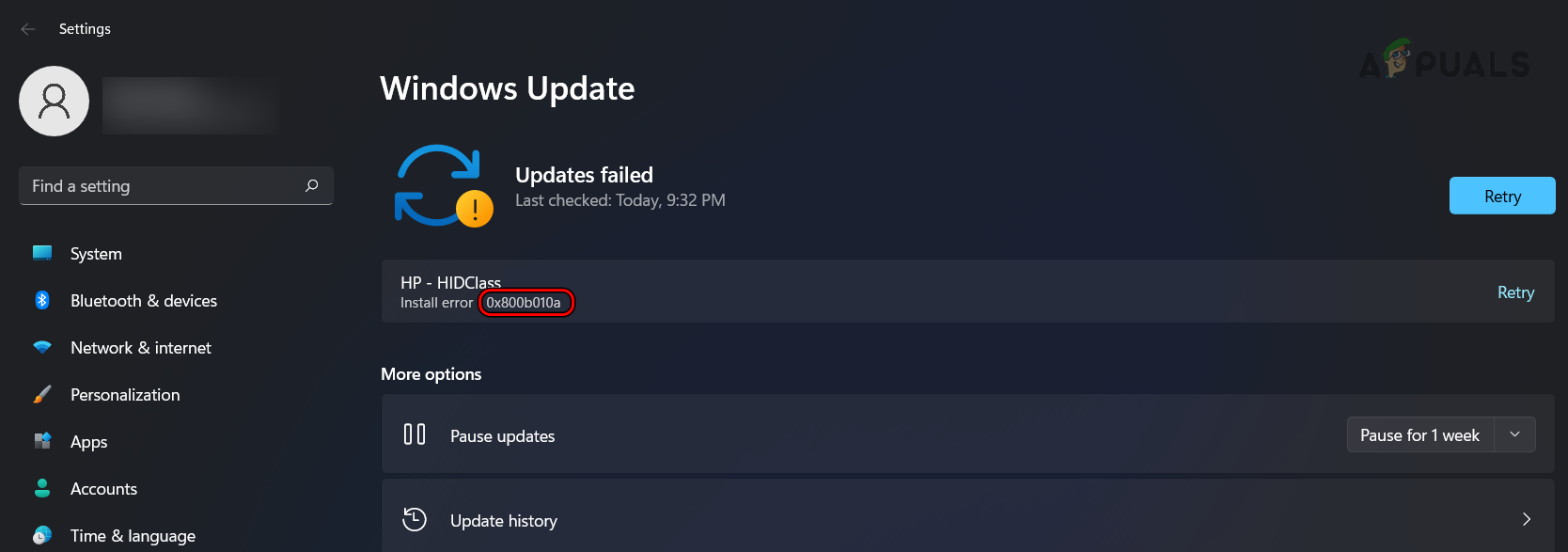
How to Fix Windows Update Error 0x800B010A
We will try to fix it by troubleshooting different Windows update aspects and if that fails, we will manually install the update or perform an in-place upgrade.
1. Check for Windows Updates Again
You will see the Windows update error 0x800B010A notification if an ongoing update locked a system resource or a prerequisite update was not installed on the system. Here, checking for Windows updates again will solve the problem.
- Right-click Windows and go to Settings > Windows Update.
- Click on Check for Updates and install all the updates. Leave the one showing the error.

Check for Windows Updates - Restart the system and to Settings > Windows Update > Advanced Options > Optional Updates.
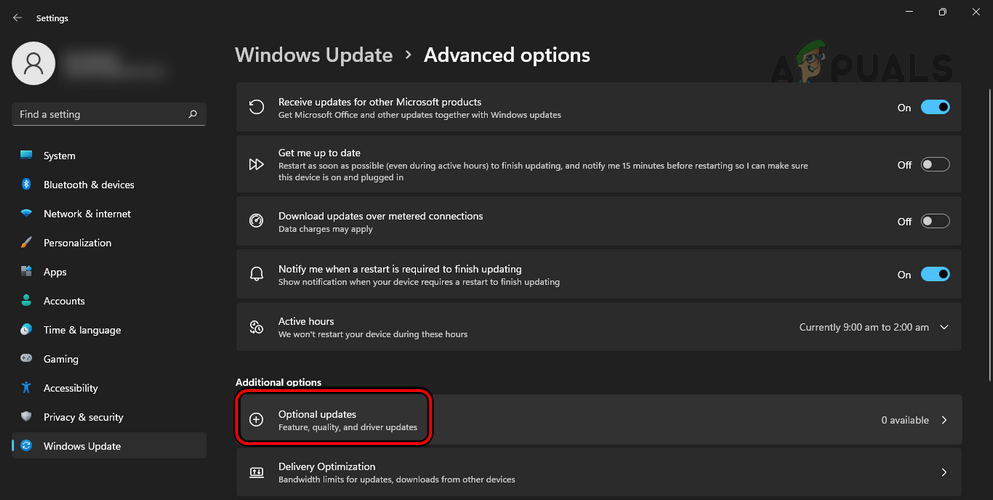
Open Optional Updates in the Windows Update - Install all the optional updates as well and restart your system.
- Navigate to Settings > Windows Update.
- Again, Check for Updates and install the updates available. See if the problematic update is installed.
2. Perform a Clean Boot of the System
You will fail to update your system with the 0x800B010A error if another process or service on your system is locking the access of OS components to essential resources. To check this, perform a clean boot of your system.
- Clean boot your Windows system, and check for Windows updates.

Clean Boot the Windows PC - If the process goes smoothly, another application or service was causing the issue.
3. Hide the Problematic Update
If the problematic update is for another manufacturer but you have a system from another manufacturer (e.g., a Dell PC is offered an HP keyboard driver update), then that update does not apply to your system and you should hide it.
Remember only hide the update if it does not apply to your system.
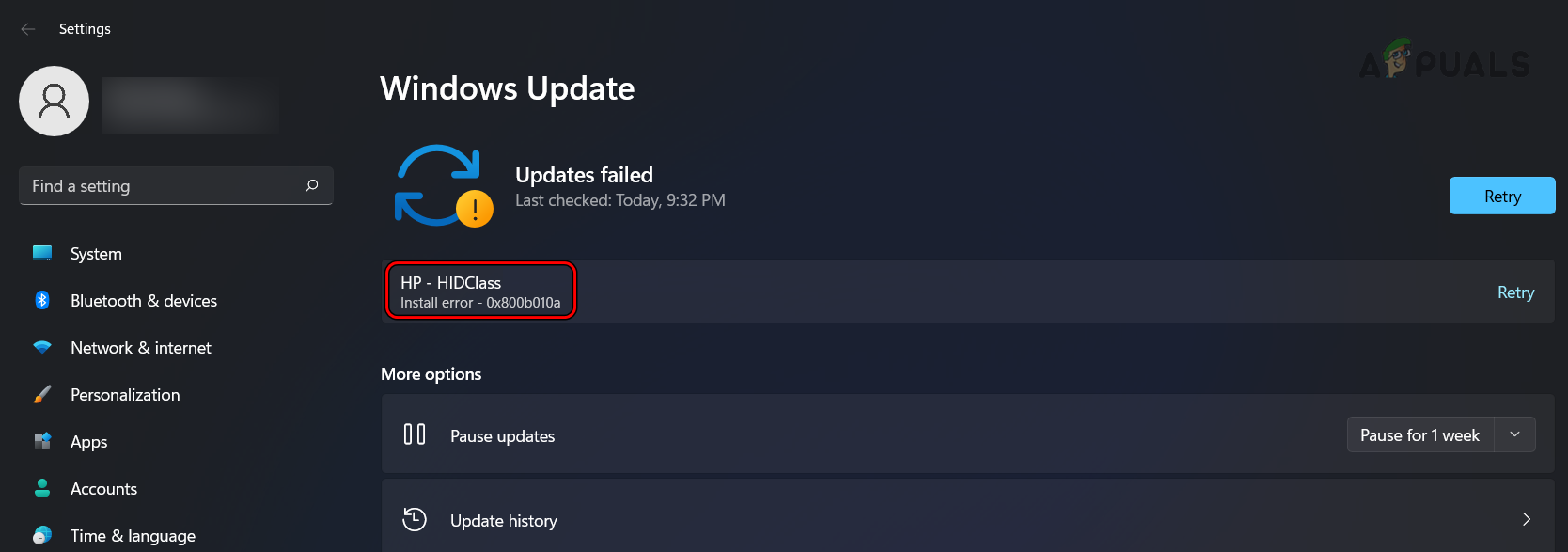
- Hide the problematic Windows update and restart your system.
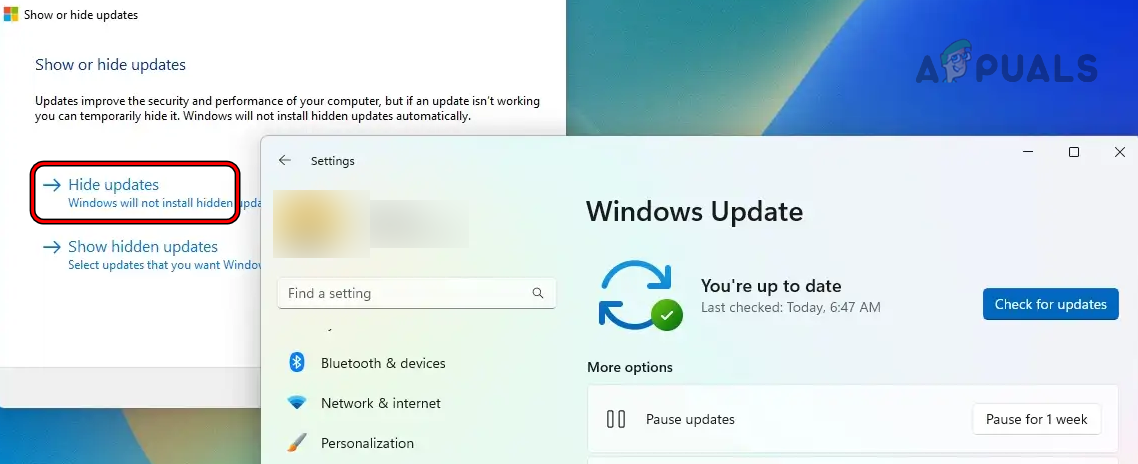
Hide Windows Updates - Check for Windows updates and see if the problem is solved.
4. Reset Windows Update Components
Windows Update components are responsible for completing Windows updates on your system. If any of these components is malfunctioning or gets damaged, the update process will fail with the error at hand.
To solve this, reset Windows Update components.
- Click Windows and search for CMD.
- Right-click on it and select Run as Administrator.
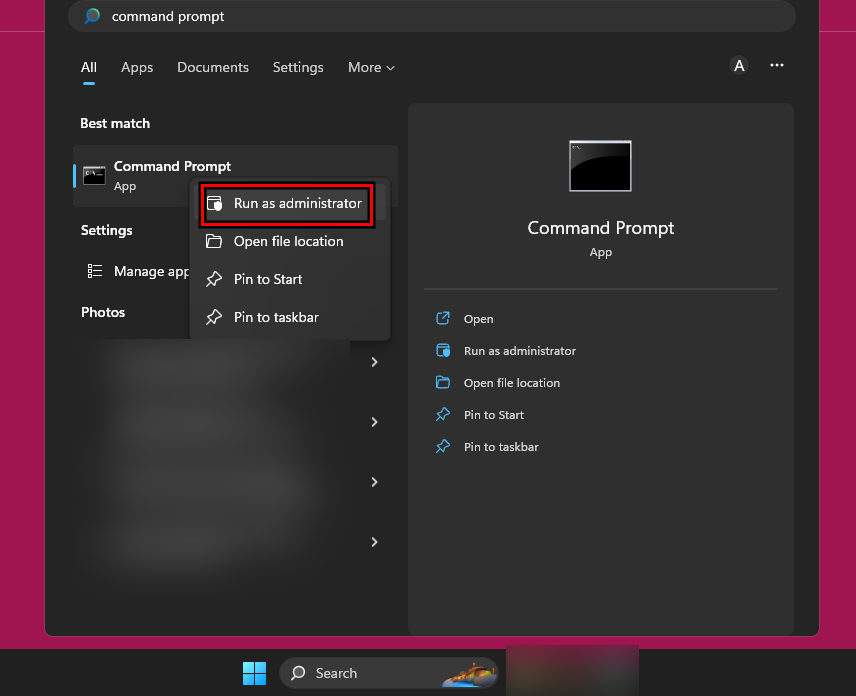
Open the Command Prompt as an Administrator - Click OK on the UAC prompt and execute the following one by one:
net stop wuauserv net stop cryptSvc net stop bits net stop msiserver ren C:\Windows\SoftwareDistribution SoftwareDistribution.old ren C:\Windows\System32\catroot2 catroot2.old net start wuauserv net start cryptSvc net start bits net start msiserver Exit
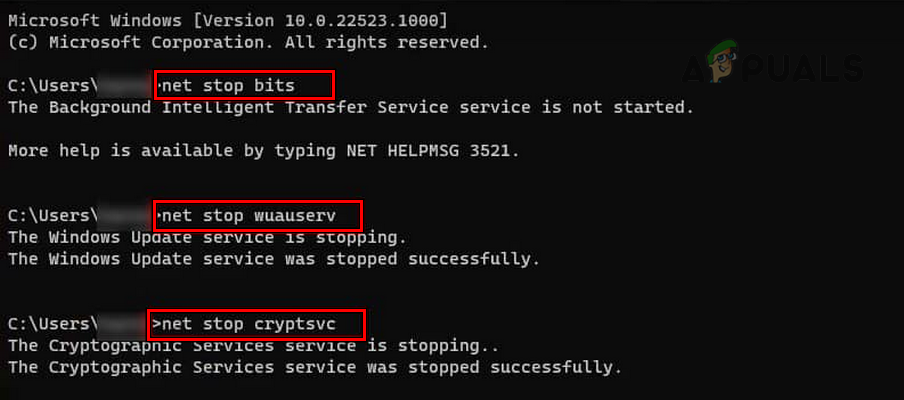
Reset Windows Update Components - Restart the system and check for Windows updates. See if the error is cleared.
5. Disable or Uninstall the Antivirus
You will fail to complete Windows Update with error 0x800B010A if your system’s antivirus is hindering the operation of updates. To fix this, disable or uninstall the system’s antivirus.
Warning:
Advance with extreme caution and at your own risk as disabling or uninstalling the system’s antivirus may expose the system and data to threats.
Disable the Antivirus
- Expand the hidden icons of the system tray and right-click on the antivirus icon.
- Select Pause Antivirus and confirm to pause the antivirus.
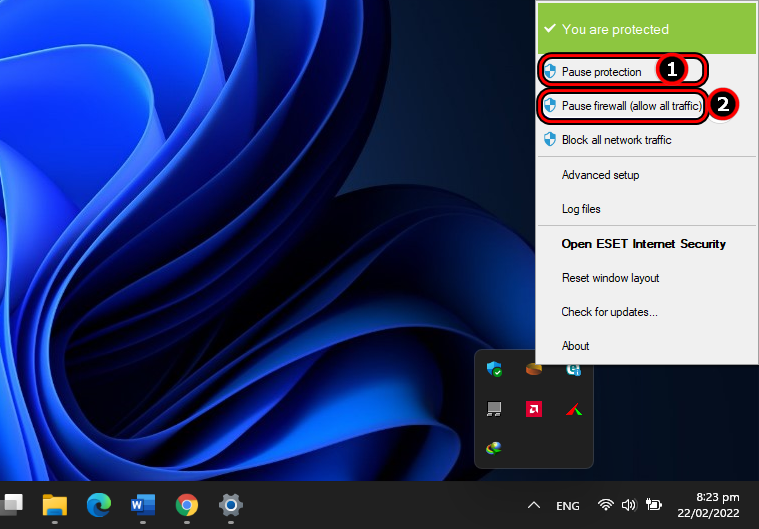
Pause ESET Protection and the Firewall - Pause the system’s firewall and check if the update error 0x800B010A is cleared.
6. Uninstall the Antivirus
- Right-click Windows and select Apps & Features.
- Locate the antivirus product and expand its options.
- Select Uninstall and confirm to uninstall the antivirus.
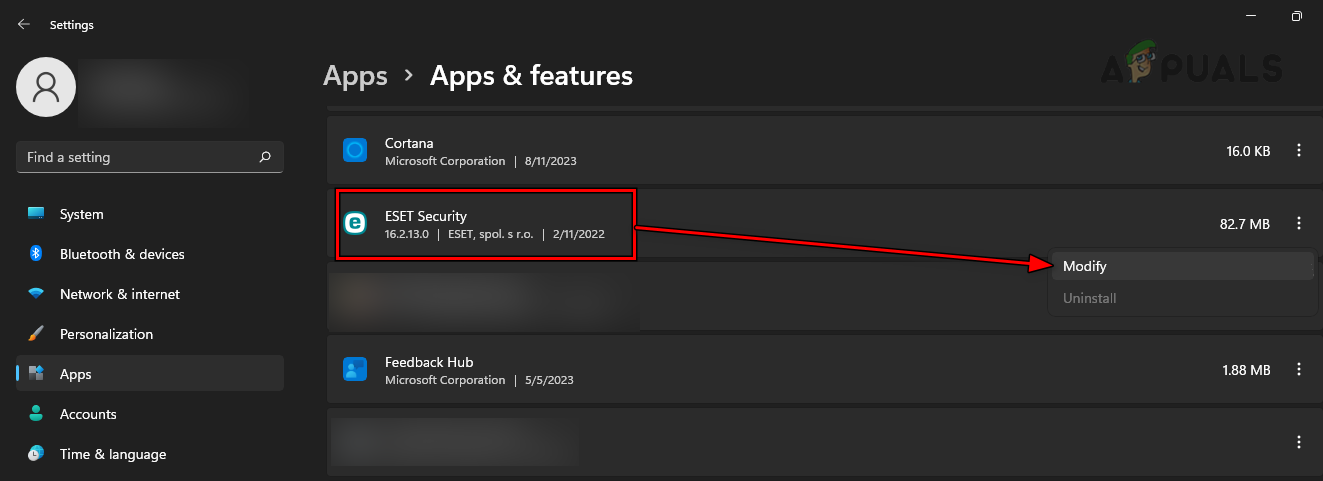
Uninstall ESET on Windows - Once done, restart the system and check if Windows updates can be completed without showing the error 0x800B010A.
7. Manually Install the Problematic Update or Perform a Repair Install of Windows
As the Windows Update is failing to install the problematic one, manually installing the same will do the trick. If this fails, then performing a repair install of the PC’s Windows will get the job done.
- Launch a web browser and go to the Windows Update Catalog
- Search for the problematic update and download the one that matches your setup.
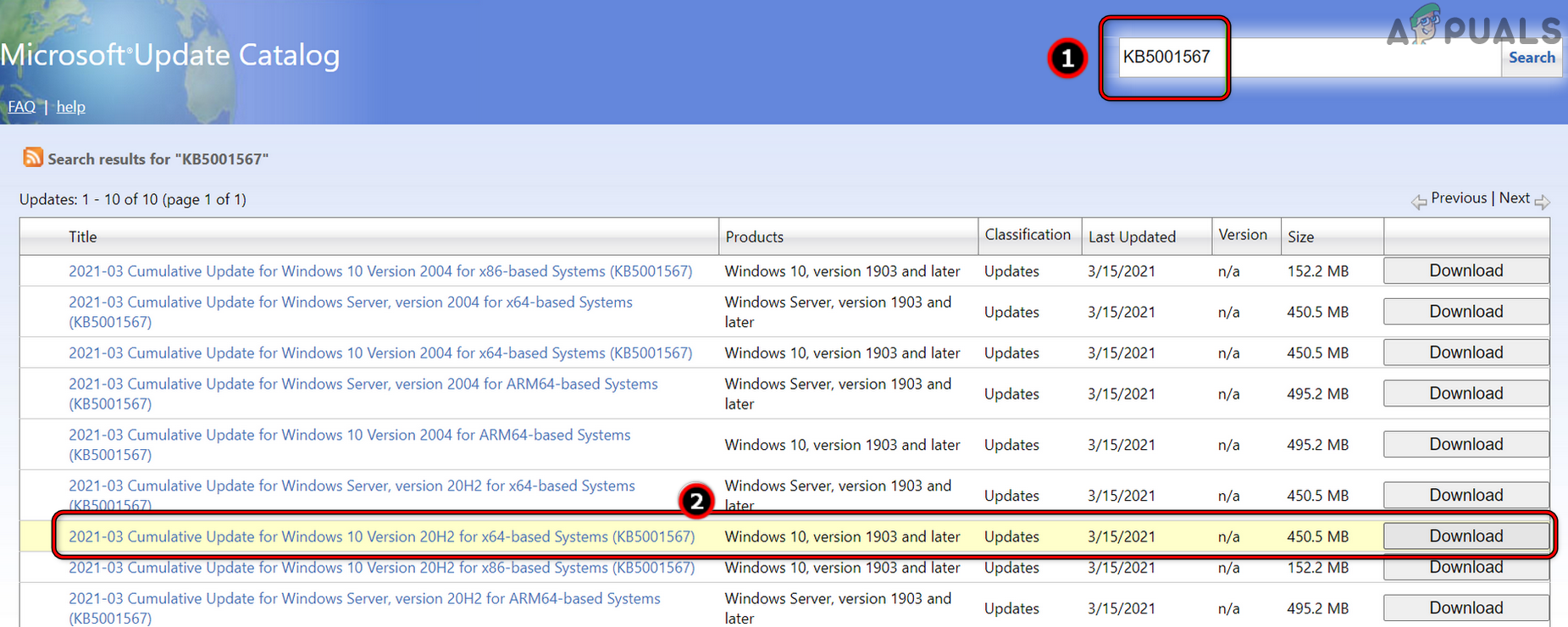
Search and Download an Update from the Windows Update Catalog Website - Install it and restart the system.
- Check for Windows Updates again and verify if the issue is resolved.
- If not, perform a repair install of the system’s Windows and see if that clears the problem.
8. Export and Import Certificates
If a required certificate is not valid or gets damaged, the update process will fail to authenticate it and as a result, will stop Windows update installation, thus causing the error 0x800B010A.
In this scenario, exporting the certificates from a trusted system and importing them into the problematic system will clear the error.
- On a working PC, click Windows and search for Internet Options.
- Open it and go to the Content tab.
- Click on Certificates and go to Trusted Root Certification Authorities.
- Go to a Microsoft-issued certificate and select it.
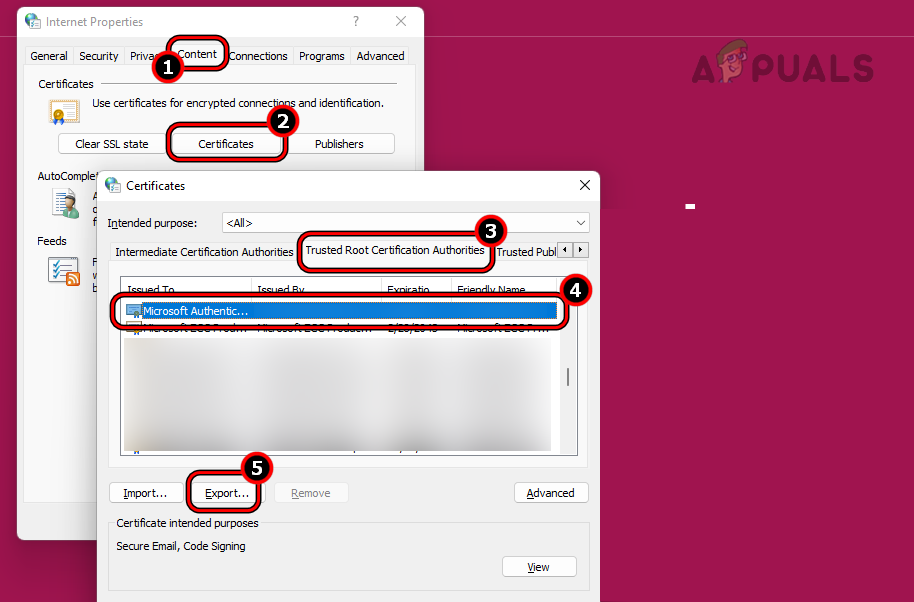
Export a Microsoft Certificate on a Windows PC - Click on Export and follow the prompts to export it.
- Export all the Microsoft-related certificates and copy the exported certificates to the problematic PC.
- On the problematic PC, open Internet Option and go to Content > Certificates > Trusted Root Certification Authorities.
- Click Import and import the certificates (exported earlier).
- Once done, restart the system and check for Windows updates. See if this clears the error.
9. Restore Your System or Reinstall Windows
Windows update will fail with error 0x800B010A if a recent change to the system has made the system incompatible with the update. To fix this, restore the system to an earlier date (if a backup is available).
- Start the system restore process and wait till the process completes.
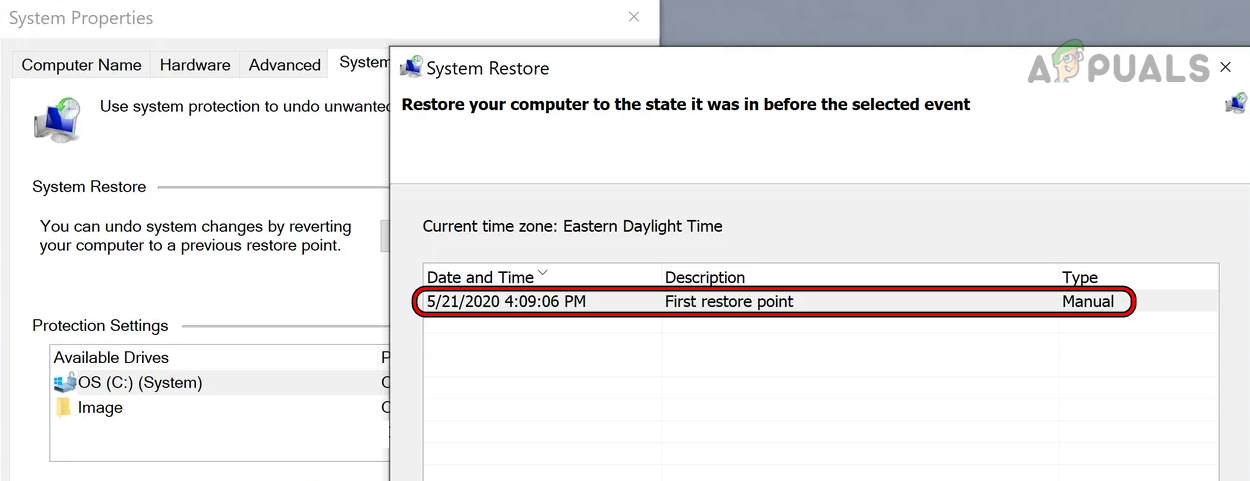
Restore Your System - Once done, check for Windows updates and hopefully, the issue would be resolved.
If this does not work, perform a clean installation of Windows on your system. If the issue persists after the clean installation, contact Microsoft Support.
 Reviewed by
Reviewed by 




